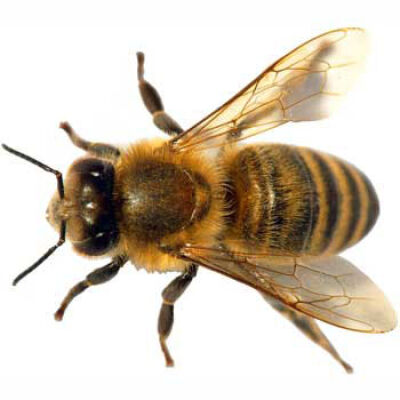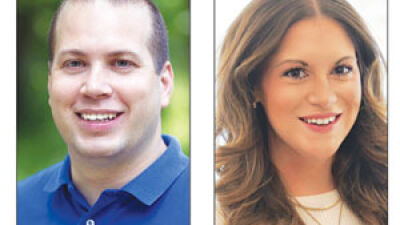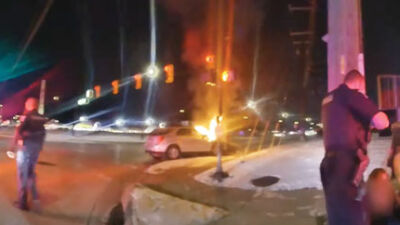STERLING HEIGHTS — It has come to “bee”: The Sterling Heights City Council voted in May to introduce and then formally approve a pair of ordinances that allow regulated hobby beekeeping in the city.
The city has been talking about and studying the issue for over a year, and those talks prompted officials to write up two ordinance proposals. City officials said these proposals have since been reviewed by the Sterling Heights Sustainability Commission, local beekeeping groups and Michigan State University.
Last December, the Sterling Heights Planning Commission recommended the proposed beekeeping regulations 8-0.
City Planner Jake Parcell said during a May 7 council meeting that, between the two proposed ordinances, the zoning ordinance sets up hobby beekeeping as an accessory use, and the regulatory ordinance defines hobby beekeeping and regulates it with the state’s and other communities’ best practices in mind.
Topics raised in the regulation include hive placement and setbacks; hive number limits; a required flyway barrier to keep bees from bothering neighbors; and a required water supply for the insects.
The requirements may differ depending on zoning classification and property size. For instance, there’s a two-hive limit on properties under a half-acre, but some larger properties may have up to 20, Parcell explained.
There’s also a permitting process that will require applicants to pay around $70 and take a beekeeping course, Parcell said.
“The last thing we want is people purchasing hives, neglecting them and letting them die,” he said.
Councilman Michael Radtke said he supports beekeeping and doesn’t think the practice would explode in popularity if it gets approved.
“It’s a specialized task,” he said. “And the ordinance is pretty clear: You have to have a beekeeping class. … You have to establish a barrier. You have to buy the hives.
“And … as someone who likes hobbies, I’m sure this is not a cheap hobby to invest in all this gear and all this stuff and import the bees and everything else.”
However, Radtke said he was concerned about the proposal’s civil liberties implications. He interpreted a section as essentially allowing code enforcement to inspect beekeeping properties “whenever they’d like” without a warrant.
“I would be comfortable with the property being inspected every three years, which is when the permit expires, or upon a complaint. That makes the most sense to me,” he said. “But the idea that … the city could just come on your property whenever because you have a beehive, I think that that seems to be a little bit overkill.”
Parcell said the wording was designed to allow rapid responses should something like a massive delivery of hives take place or if bees start swarming while their owner is on vacation. He added that code enforcement announces their presence and doesn’t sneak around on people’s property.
City Attorney Marc Kaszubski added that code enforcement knocks first, and he believed that any such visits would be “largely complaint-driven” and done to prevent “immediate harm.”
But during the May 21 meeting, Parcell said city officials changed the proposal’s wording on inspections to make it more of a “case-by-case basis” that prioritizes safety.
“If something happens with bees or in that instance where we want to get on-site and control the animals, in order to provide safety for the residents of the house or adjacent neighbors … then we want to be able to enter and remediate that as soon as possible,” Parcell said.
“I believe this language is more in line with what we’ve seen in other instances in our code of ordinances, and based on our verbiage here, we believe it is sufficient to justify immediate entry in these instances alone.”
Radtke then proposed an additional motion to reduce the hive setback requirement from 20 feet from the property line to 10 feet, and council members approved that motion 5-2, with councilwomen Barbara Ziarko and Maria Schmidt dissenting. Ziarko had earlier said on May 7 that she preferred keeping the 20-foot setback requirement unless “the time comes that people are suggesting that they need that change,” in which case the council could then consider a variance or changing that requirement in the future.
Finally, the council formally adopted the pair of beekeeping ordinances with unanimous votes.
Learn more about Sterling Heights by visiting sterlingheights.gov or by calling (586) 446-2489.
 Publication select ▼
Publication select ▼



















